After graduating from an agricultural university and working in various jobs, Cao Ba Quat (42 years old) decided to settle down and start a high-tech agriculture business in Da Lat City (Lam Dong Province).
In late 2024, introduced by the Farmers' Association of Da Lat City, we visited the tomato garden and leafy vegetables of Mr. Cao Ba Quat (residing in Da Lat City). What surprised us most was that this farmer's name was the same as the name of the famous poet Cao Ba Quat from the 19th century.
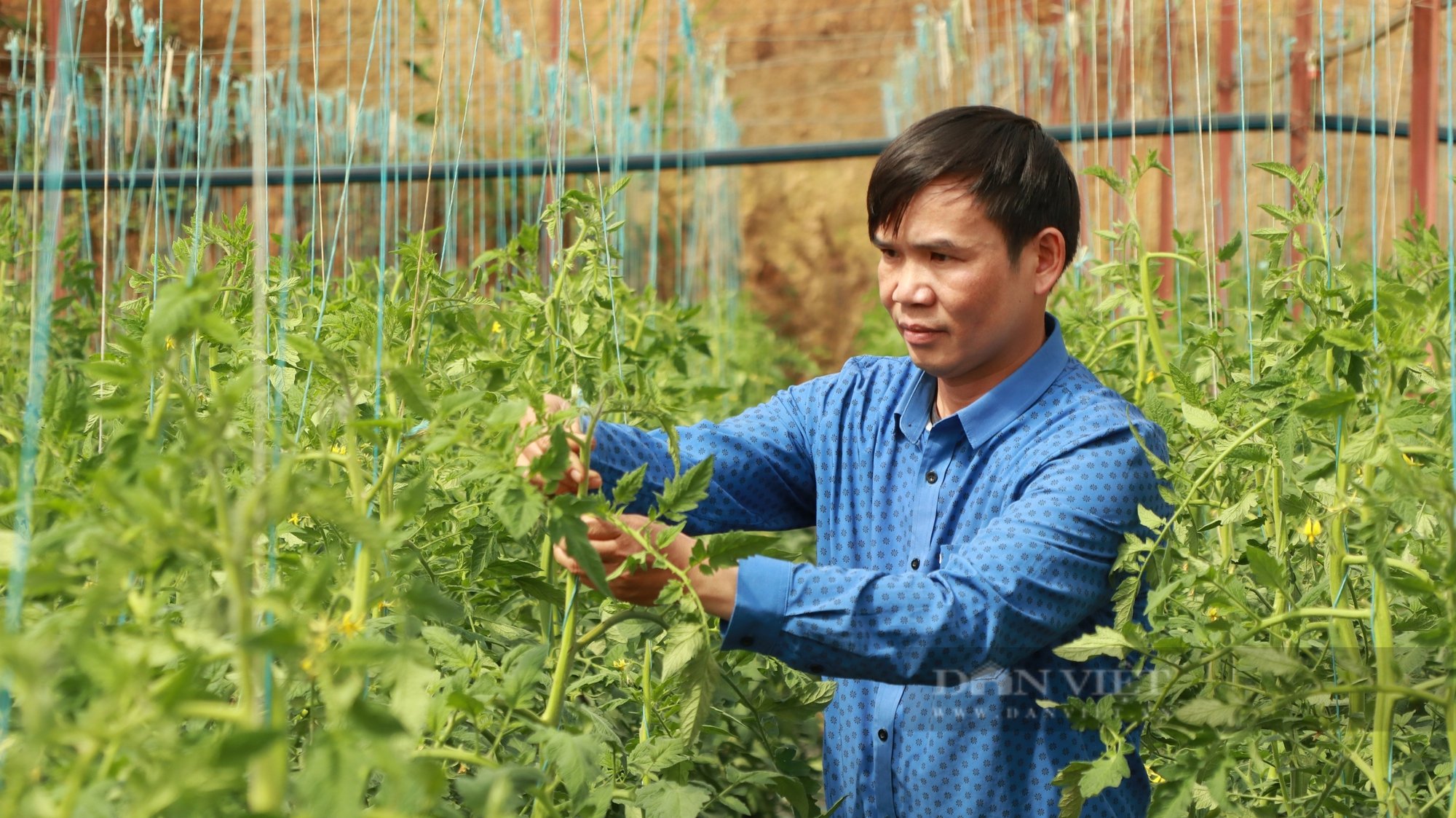
Mr. Cao Ba Quat in his high-tech tomato garden in Da Lat city, Lam Dong province.
Taking reporters on a tour of his tomato garden, Mr. Cao Ba Quat shared that he was born and raised in Cam Xuyen district (Ha Tinh province). In 2004, after graduating from the University of Agriculture in Hanoi , majoring in Soil, he went to Da Lat city to find a job suitable for his major.
"After graduating, a friend and I went to Da Lat City to find work. When I first arrived in Da Lat, I applied for a job at a company specializing in vegetable and flower production. After many changes in different jobs, my friend and I decided to rent land to grow vegetables ourselves and sell them to the market.
By 2013, after the two brothers had enough experience and financial capacity, they decided to separate and start their own business. That year, I borrowed money from the bank and rented 0.6 hectares of land to do high-tech agriculture," Cao Ba Quat shared.
Mr. Quat added that in the beginning, high-tech agriculture also encountered many difficulties because this model was newly developed. In particular, finding sources of guaranteed seedlings, fertilizers, and pesticides was difficult. Later, the high-tech agriculture industry developed strongly, so the above conditions were met, making it easier for people and businesses to access.
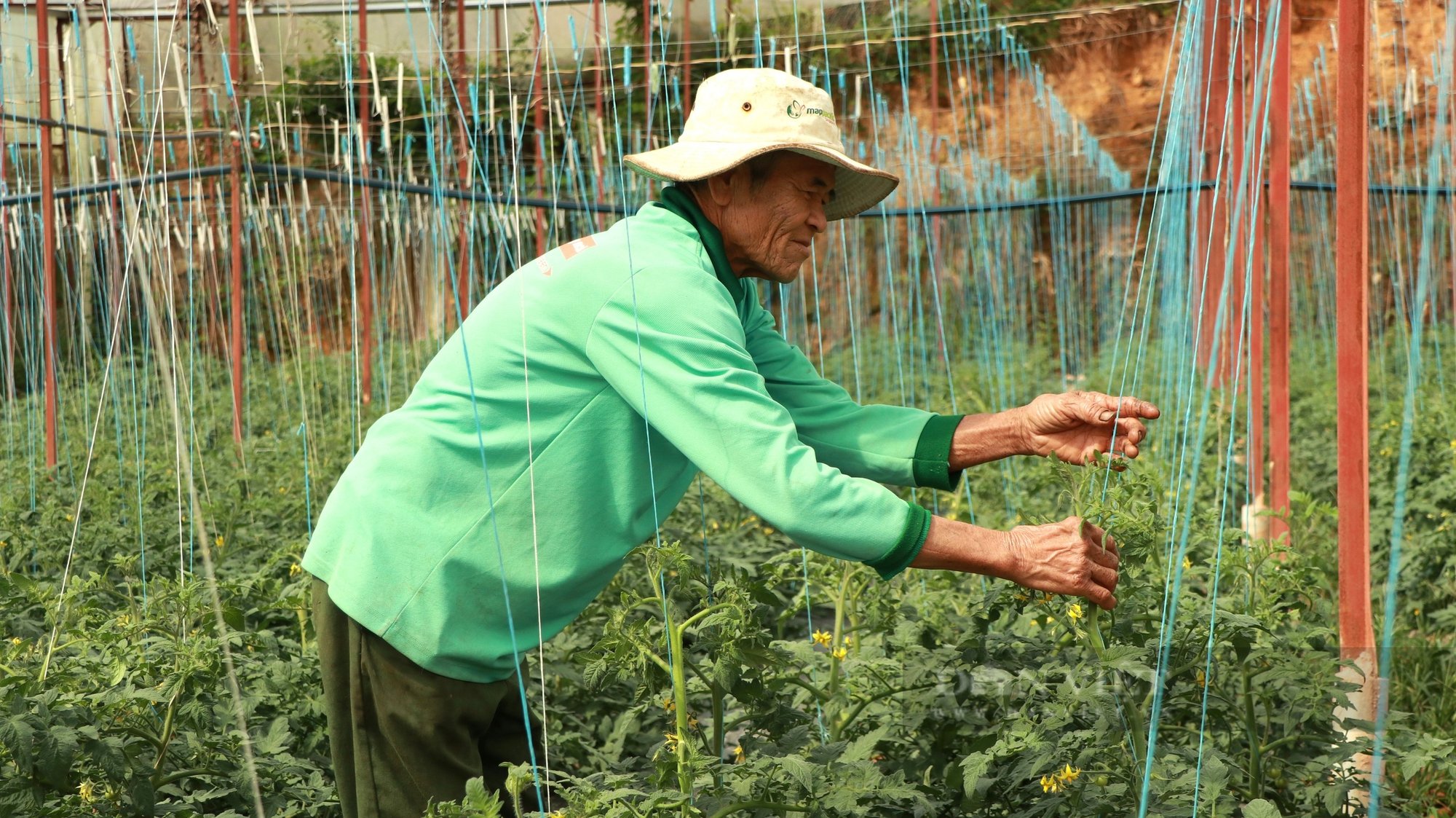
Currently, 1 hectare of vegetables and fruits in Mr. Cao Ba Quat's garden is grown according to VietGAP standards.
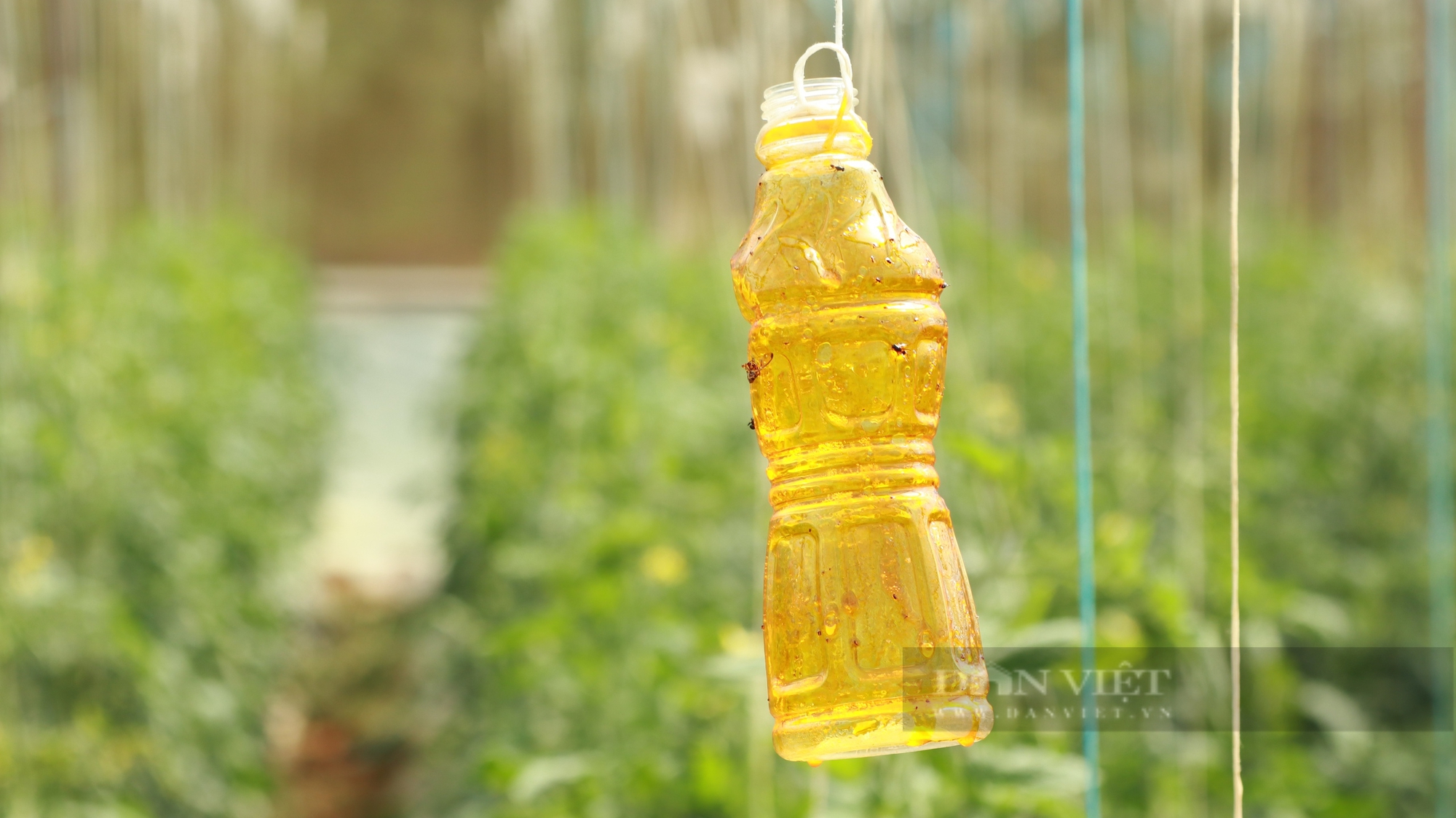
Biological glue insect traps are installed in Mr. Quat's garden.
In 2013, with 1 billion VND, Mr. Cao Ba Quat invested in a greenhouse and installed an automatic irrigation system to grow tomatoes, cucumbers and leafy vegetables.
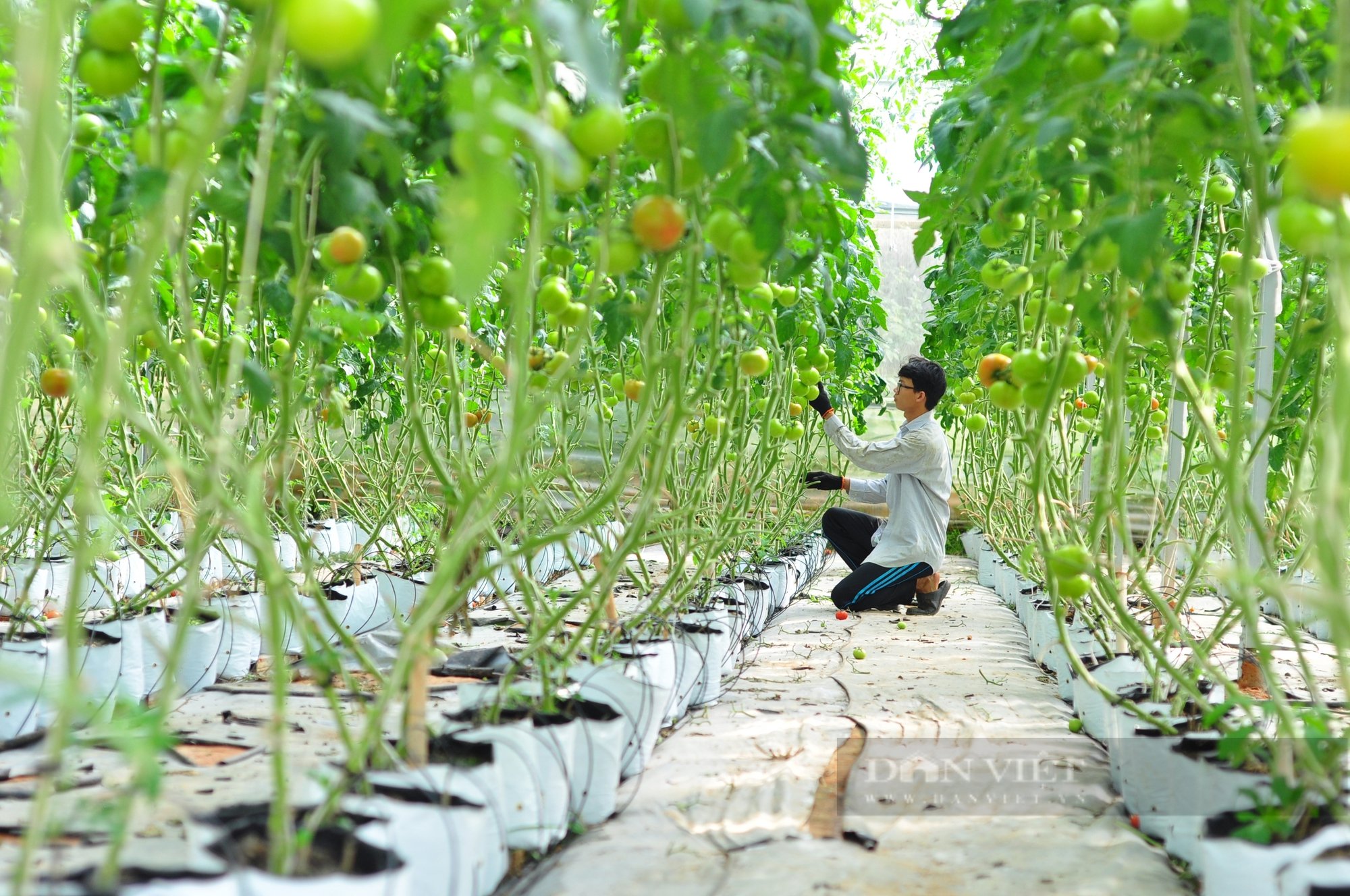
Every month, Mr. Quat supplies the market with 5-7 tons of vegetables, which are purchased by partners.
After 10 years of working on the above area, by 2023, he must return the land to the garden owner. Mr. Cao Ba Quat must continue to rent another hectare of land in Ward 10, Da Lat City.
Currently, Mr. Quat's 1 hectare of land in the Mimosa Pass area is still being planted with vegetables that have been with him for decades. Tomatoes, bell peppers, and leafy vegetables are all grown according to VietGAP standards.
Inside the greenhouse, Mr. Quat installed a drip irrigation system to save water. At the same time, he used a biological glue to catch insects and fruit flies that invade and suck vegetables and fruits.
"Currently, with the above vegetables, I am having partners sign contracts to purchase them. Every month, I supply the market with 5-7 tons of vegetables and fruits of all kinds. After deducting expenses, on average, I earn 100 million VND per year from 1,000m2," said Mr. Cao Ba Quat.
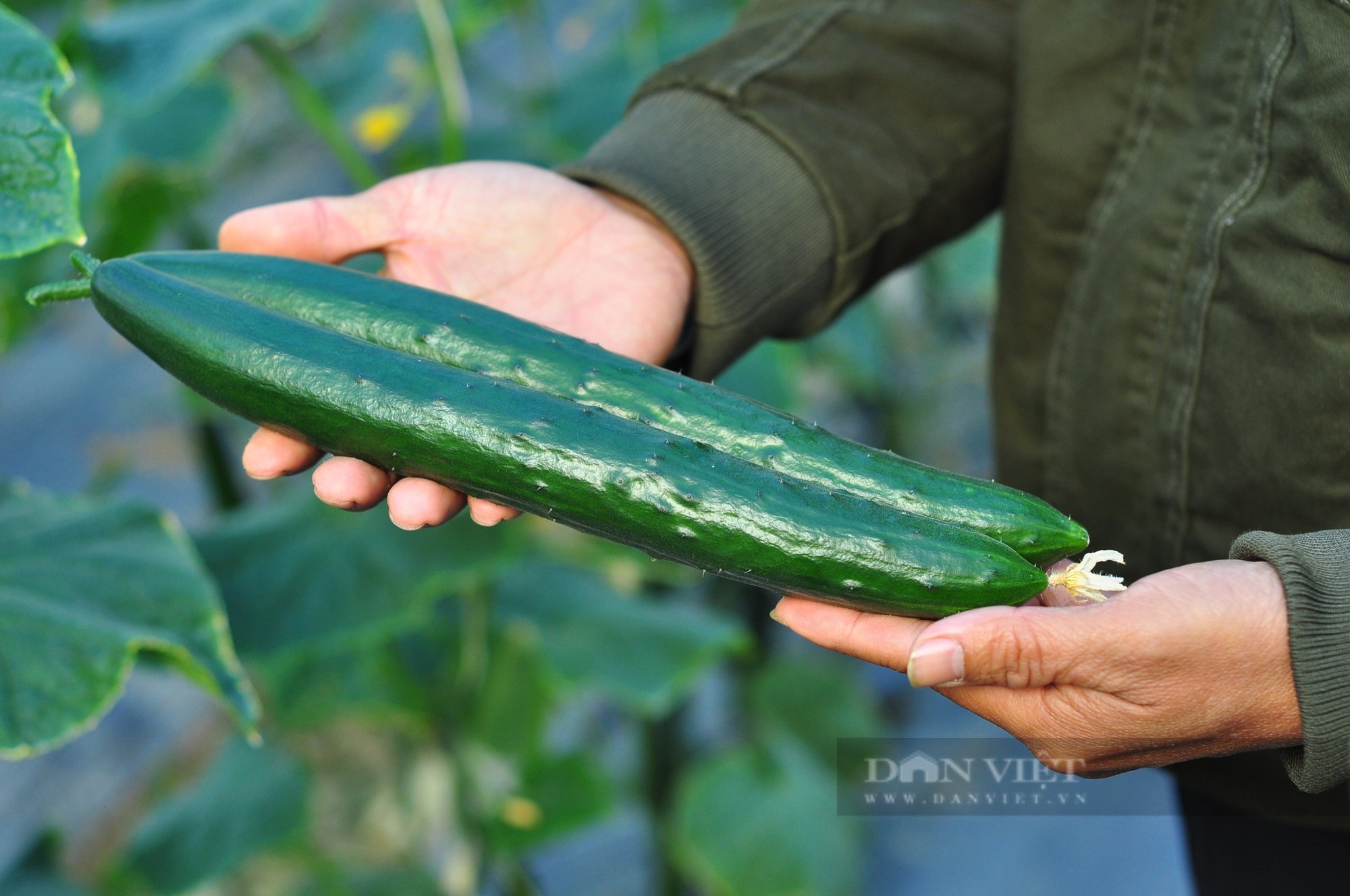
On average, for every 1,000 square meters of high-tech vegetable growing at his farm in Da Lat, Mr. Quat will earn 100 million VND per year.
Talking about the high-tech agricultural model of Mr. Cao Ba Quat, Ms. Nguyen Thi Phuong Anh - Vice President of the Farmers' Association of Da Lat City commented that this is a model with high economic efficiency, and the locality encourages farmers and individuals to develop it.
According to Ms. Phuong Anh, high-tech agricultural models like Mr. Cao Ba Quat's will help prevent pests and diseases for crops.
The high-tech vegetable growing model also helps increase the output of farming households, businesses, and cooperatives. At the same time, people will be proactive in crop structure, arranging appropriate seasons, thereby increasing revenue.
Source: https://danviet.vn/cam-bang-dai-hoc-ve-anh-cao-ba-quat-len-da-lat-trong-rau-kieu-gi-ma-be-an-ngay-tai-ruong-20241211180609496.htm



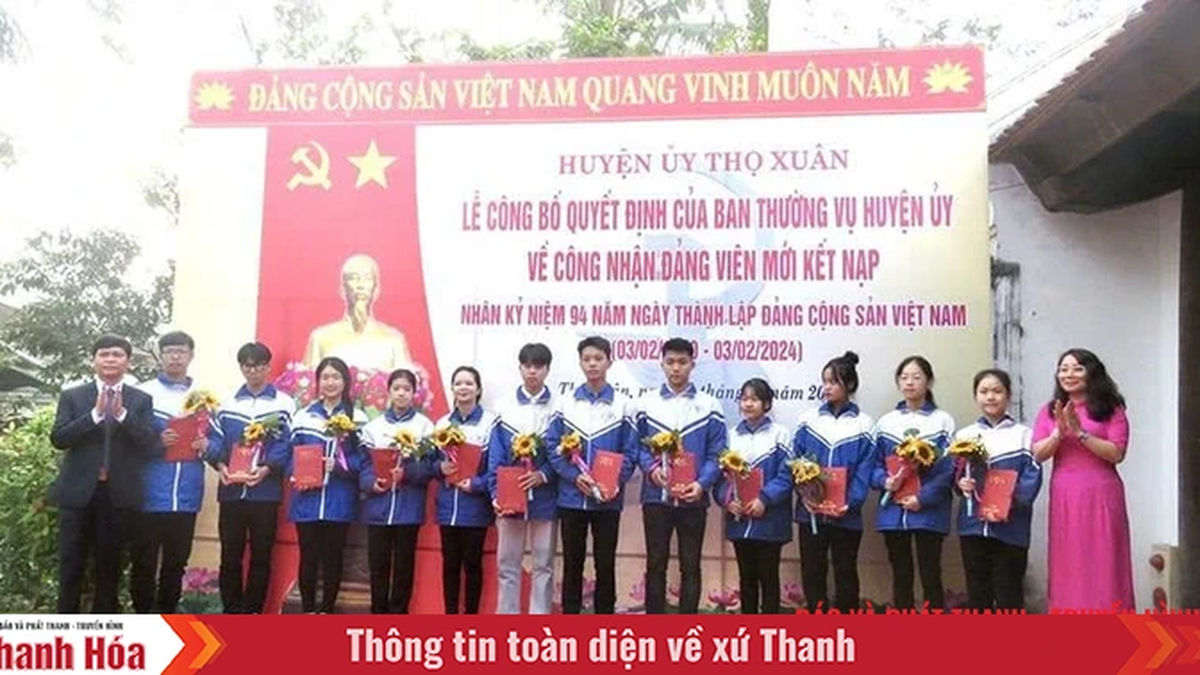


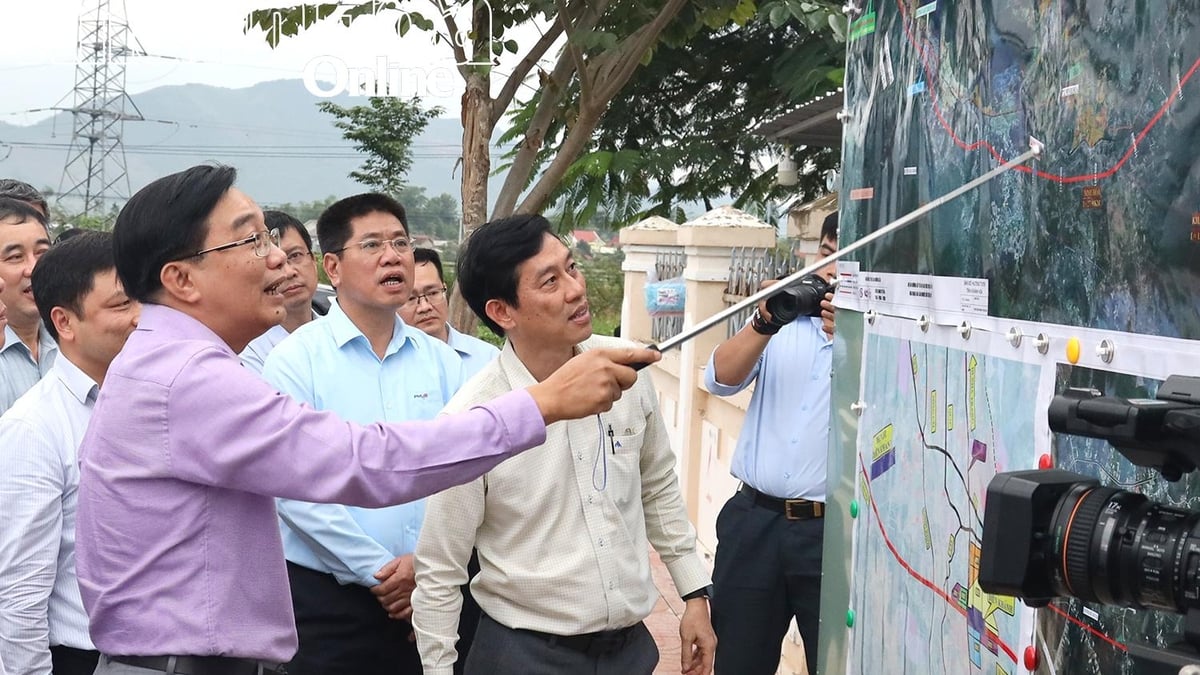

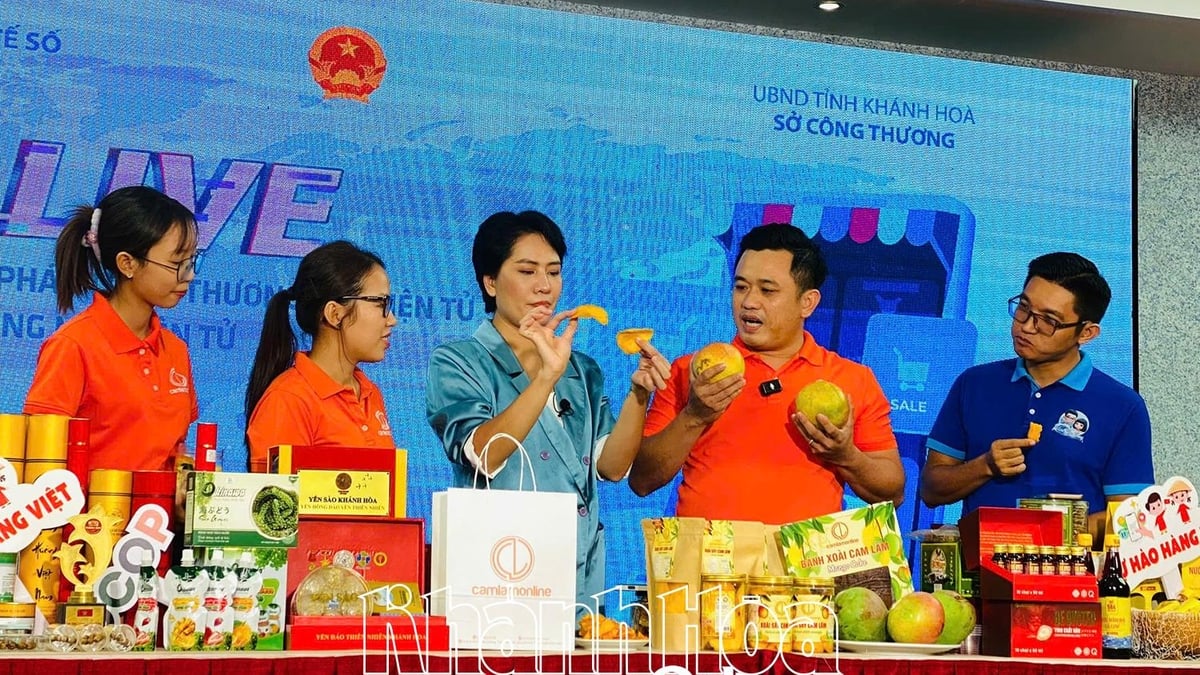


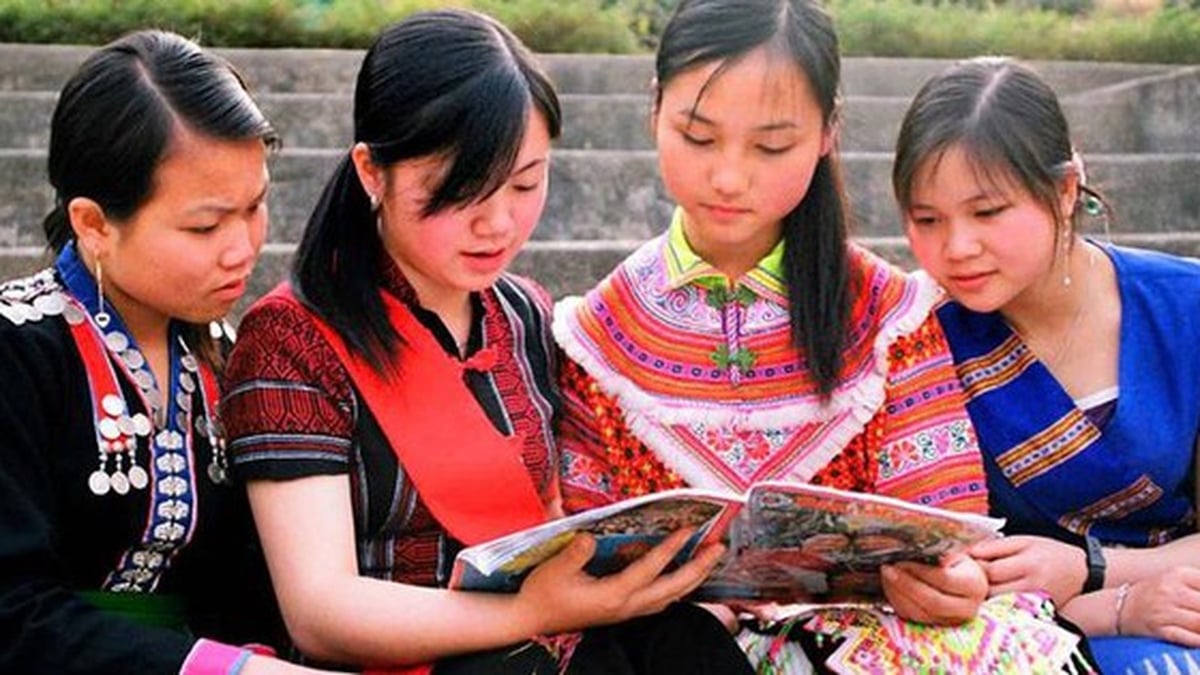















![[Photo] National Assembly Chairman attends the seminar "Building and operating an international financial center and recommendations for Vietnam"](https://vphoto.vietnam.vn/thumb/1200x675/vietnam/resource/IMAGE/2025/7/28/76393436936e457db31ec84433289f72)








































































Comment (0)